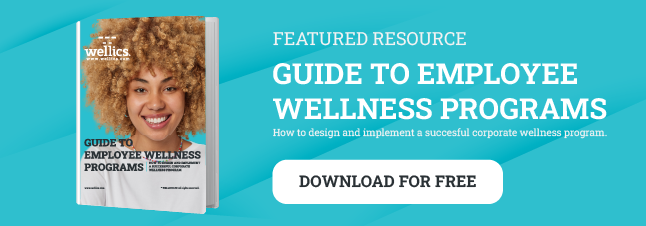In today's rapidly evolving professional landscape, workplace memes have emerged as a powerful tool for employees to express their work-related experiences in a humorous and relatable manner. These memes, often shared through social media channels, have garnered significant attention and sparked a debate on their true purpose. Do workplace memes primarily serve as outlets for workplace dissatisfaction, or are they merely lighthearted distractions? This article explores the connection between office memes and workplace culture, delves into the insights they provide about employee sentiments, and examines how HR departments are responding to these expressions.
Workplace Memes - Expressions of Dissatisfaction or Distractions?
Workplace memes have become a significant part of modern work culture, allowing employees to convey their frustrations, challenges, and aspirations in a relatable and humorous way. These memes often touch upon common workplace themes, such as unrealistic expectations, office politics, or work-life balance struggles. While some argue that workplace memes primarily serve as expressions of workplace dissatisfaction, others view them as lighthearted distractions that help foster camaraderie and alleviate work-related stress.

HR departments can leverage workplace memes as a valuable source of data. By analyzing these memes, HR departments can gain valuable insights into the employee experience, address underlying concerns, and foster a supportive work environment. Workplace memes act as a collective voice, providing HR professionals with a unique opportunity to listen to the messages conveyed by employees in a lighthearted and relatable manner. These insights can help HR departments identify patterns and themes related to workplace dissatisfaction, work-life balance, communication gaps, or other areas of concern. Armed with this knowledge, HR can implement targeted initiatives to address these issues and create a more supportive and inclusive work environment.
Workplace memes align with the HR trends of 2023, which emphasize the importance of corporate culture shift and employee well-being. As organizations recognize the significance of cultivating a positive and engaging work culture, workplace memes can serve as an important tool in this process. By paying attention to the sentiments expressed through memes, HR departments can better understand the collective mindset of employees and work towards aligning organizational values, communication practices, and policies to create a more positive and fulfilling work experience.
The HR trends of 2023 also highlight the growing emphasis on employee well-being. Workplace memes often touch upon aspects related to stress, burnout, and work-life balance, providing HR departments with valuable insights into the well-being challenges faced by employees. By taking these insights into account, HR can develop comprehensive well-being initiatives, such as mental health support programs, flexible work arrangements, or wellness benefits, that address the specific needs and concerns raised through these memes. This proactive approach to employee well-being not only enhances the overall work culture but also contributes to improved productivity, engagement, and retention rates.
The future of work; 9 Top Trends in HR for 2023 and Beyond
But what are the top trends that HR professionals think will have a major impact on the workplace? Here are nine predictions, based on Gartner research, that highlight aspects of work that leaders must prioritize over the next months.
Employee Well-being Takes Center Stage:
In 2023, organizations will increasingly prioritize employee well-being as a strategic imperative. HR departments will focus on holistic wellness programs that encompass physical, mental, and emotional health. Initiatives such as flexible work arrangements, mental health support, and stress management programs will be key in creating a supportive and thriving work environment.
Hybrid Work Models Become the Norm:
The COVID-19 pandemic has accelerated the adoption of remote work. In 2023, hybrid work models, combining remote and in-person work, will become the new norm. HR professionals will need to develop policies and practices that foster collaboration, communication, and productivity in hybrid work environments. This includes ensuring equitable opportunities for both remote and on-site employees.
Upskilling and Reskilling for the Digital Era:
As technology continues to advance, HR professionals must prioritize upskilling and reskilling initiatives to equip employees with the necessary digital skills. Organizations will invest in training programs, digital learning platforms, and partnerships with educational institutions to ensure their workforce remains competitive and adaptable in the digital era.
Agile Talent Management:
Agility will be a critical component of talent management in 2023. HR departments will adopt agile practices to facilitate rapid decision-making, flexible team structures, and project-based work. This approach allows organizations to quickly respond to market changes, leverage diverse skill sets, and promote innovation.
Inclusive Leadership:
Diversity and inclusion will remain at the forefront of HR strategies in 2023. Organizations will prioritize building inclusive cultures that value diverse perspectives and experiences. HR professionals will focus on fostering inclusive leadership practices, implementing unbiased hiring processes, and promoting diversity throughout all levels of the organization.
Ethical Use of AI and Data Privacy:
The ethical use of artificial intelligence (AI) and data privacy will be paramount in 2023. HR professionals will play a crucial role in ensuring transparency, fairness, and accountability in AI-driven HR practices, such as recruitment, performance evaluation, and talent analytics. Data privacy measures will be implemented to protect employee information and build trust within the workforce.
Redefining Performance Management:
Traditional performance management practices will continue to evolve in 2023. HR professionals will shift towards continuous feedback, coaching, and goal-setting processes. Organizations will focus on fostering a growth mindset and providing ongoing development opportunities to drive employee engagement and performance.
Gig Economy Integration:
The gig economy will increasingly influence the way work is structured in 2023. HR departments will explore innovative ways to integrate gig workers into their talent strategies, ensuring seamless collaboration, effective onboarding, and equitable treatment. Organizations will leverage technology platforms to manage and engage with gig workers efficiently.
Future-Ready HR Technology:
In 2023, HR technology will undergo a significant transformation to support the evolving needs of HR professionals. Advanced analytics, artificial intelligence, and automation will enhance HR processes such as recruitment, employee engagement, and talent development. HR departments will leverage these technologies to streamline operations, improve decision-making, and deliver personalized employee experiences.
Prioritizing Employee Wellbeing
Employee well-being goes beyond physical health and extends to mental, emotional, and social aspects. It encompasses creating a work environment that supports employees' holistic needs, fosters engagement, and promotes their overall satisfaction. By investing in employee well-being, organizations can enhance employee engagement, attract and retain top talent, reduce absenteeism and healthcare costs, build a positive organizational culture, foster creativity and innovation, and ensure sustainable business success.

Enhanced Employee Engagement and Productivity:
When employees feel valued, supported, and their well-being is prioritized, they are more engaged in their work. Engaged employees are emotionally committed to their organizations, which results in higher productivity, improved quality of work, and increased innovation. By investing in employee well-being, organizations can create a positive work environment that motivates employees to perform at their best.
Improved Retention and Talent Acquisition:
Employee well-being is a key factor in attracting and retaining top talent. In today's competitive job market, prospective employees seek organizations that prioritize their well-being. Companies that demonstrate a commitment to employee well-being are more likely to attract high-performing individuals who value work-life balance and a supportive work culture. Moreover, by retaining talented employees, organizations can avoid the costly process of recruiting and training new staff.
Reduced Absenteeism and Health-Related Costs:
Prioritizing employee well-being can significantly reduce absenteeism and health-related costs. By promoting physical health through wellness initiatives, organizations can decrease the frequency of employee illnesses and injuries. Similarly, by providing support for mental and emotional well-being, organizations can address issues such as stress, burnout, and anxiety that often lead to extended leaves of absence. By investing in preventive health measures and support programs, businesses can mitigate the financial burden associated with absenteeism and healthcare expenses.
Positive Organizational Culture and Reputation:
Organizations that prioritize employee well-being tend to foster a positive organizational culture. A culture that promotes well-being creates a sense of belonging, trust, and respect among employees. This positive culture permeates through all levels of the organization, leading to increased employee satisfaction, collaboration, and loyalty. Additionally, organizations known for their commitment to employee well-being build a positive reputation that attracts customers, partners, and potential investors.
Enhanced Creativity and Innovation:
Employee well-being is closely linked to creativity and innovation. When employees feel supported and have a healthy work-life balance, they are more likely to engage in creative thinking, problem-solving, and innovative initiatives. Prioritizing well-being creates an environment that encourages employees to take risks, share ideas, and collaborate, ultimately driving innovation and fostering a competitive edge in the market.
Sustainable Business Success:
The future of corporate dynamics requires organizations to embrace sustainable practices. Prioritizing employee well-being is a vital aspect of sustainability. Sustainable businesses not only focus on profitability but also take into account the well-being of their employees, communities, and the environment. By fostering a culture of well-being, organizations contribute to the long-term success and resilience of their business by creating a positive impact on their employees, society, and the world.
The role of employee wellness platforms
As organizations recognize the importance of prioritizing employee well-being, employee wellness platforms have emerged as a vital tool in achieving this objective. These platforms offer comprehensive solutions, data-driven insights, personalized coaching, enhanced engagement, and measurement capabilities. By leveraging employee wellness platforms, organizations can create a culture that prioritizes employee well-being, leading to increased engagement, productivity, and overall satisfaction.
Wellics, rethink wellness redesign work.
Wellics stands out as the ultimate solution to meet every HR demand for employee wellness. With its comprehensive platform, data-driven insights, integrated coaching curriculum, tailored challenges, user-friendly interface, and commitment to data security, Wellics empowers organizations to prioritize employee well-being and drive positive organizational transformation.
Comprehensive Solution:
Wellics offers an all-in-one, cloud-based platform that caters to the unique requirements of organizations. By providing a range of features and functionalities, Wellics ensures that every aspect of employee wellness is addressed. Whether it's sleep, mental well-being, nutrition, or physical activity, Wellics covers the crucial pillars of well-being. This comprehensive approach allows organizations to create a holistic well-being strategy that supports employees in all areas of their lives.
Leveraging Data and Machine Learning:
Wellics harnesses the power of machine learning algorithms on wearable and employee performance data to deliver the Wellics™ Index (WIN). This win-win metric provides scores across the four crucial aspects of people's lifestyle. By collecting, analyzing, and reporting data, organizations gain valuable insights into employee well-being and can make informed decisions. Leveraging data allows HR professionals to identify trends, measure progress, and implement impactful changes that positively impact both employee well-being and overall organizational success.
Integrated Micro Coaching Curriculum:
Wellics goes beyond data-driven insights by offering an integrated micro coaching curriculum. This well-structured approach, based on proprietary scientific content, assists HR departments in educating, motivating, inspiring, and guiding employees toward adopting a well-being mentality. By leveraging scientifically-backed content, Wellics empowers organizations to foster a culture of well-being and equips employees with the knowledge and tools they need to prioritize their physical and mental health. The integrated coaching curriculum ensures continuous support and guidance for employees on their well-being journey.
Tailored Challenges and Rewards System:
Wellics recognizes the importance of engaging employees through tailored challenges and a rewards system. The platform provides a library of pre-designed challenges that complement corporate well-being strategies. These challenges can be personalized for individuals, peer-to-peer engagement, or team participation, accommodating different levels of collaboration. Additionally, Wellics incorporates a carefully designed rewards system that serves as an incentive for achieving sustainable development goals. This system aligns seamlessly with the overall WIN strategy, motivating and supporting employees throughout their well-being journey while contributing to broader organizational objectives.
User-Friendly Platform and Data Security:
Wellics ensures ease of use with its user-friendly platform, eliminating the need for technical expertise or coding skills. HR departments can effortlessly engage employees within minutes, freeing them from the complexities of software implementation. The platform is compatible with a wide range of wearable devices, ensuring flexibility and inclusivity. Moreover, Wellics prioritizes data security and compliance, safeguarding valuable information and earning the trust of organizations. By adhering to strict data security measures, Wellics ensures that employee data remains confidential and protected.
Transparent and Cost-Effective Pricing:
Wellics offers straightforward and flexible pricing plans, guaranteeing transparency without any hidden costs. The platform prioritizes providing complete clarity regarding the value organizations receive for their investment. Compared to competitors, Wellics' pricing plans are not only more budget-friendly but also empower organizations to fully harness the potential of advanced technologies. By offering cost-effective advantages, Wellics enables organizations to maximize the benefits of cutting-edge solutions without compromising their financial resources.
By implementing Wellics, organizations can create a culture of well-being, enhance corporate success, and nurture a workforce that is physically, mentally, and emotionally thriving. Wellics paves the way for organizations to make employee wellness a strategic priority in today's ever-evolving business landscape. Book your demo today.
Sources:
- https://hbr.org/2023/01/9-trends-that-will-shape-work-in-2023-and-beyond
- https://www.deskbird.com/blog/workplace-trends-2023
- https://www.gartner.com/en/articles/9-future-of-work-trends-for-2023









